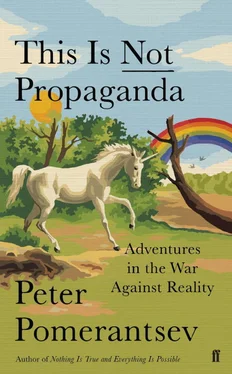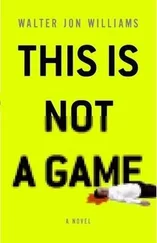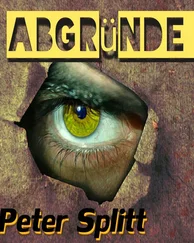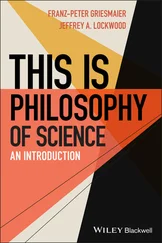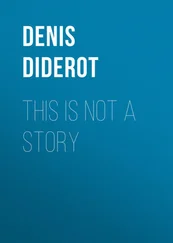Sellner is perhaps best known for a stunt he pulled called ‘Defend Europe’, when he chartered a ship to sail out into the Mediterranean and stop humanitarian organisations that help migrants making the dangerous crossing from North Africa to Europe. He has been banned from entering the UK on the grounds of ‘not being conducive to the public good’. [22]
When we talked via video, Sellner, in black-rimmed glasses that made him look more like a philosophy student than a skinhead, told me that Popović had been a massive influence on him. He sounded genuinely impressed when I told him I knew Srdja and had even attended a workshop.
Sellner maintained that we are ruled over by a ‘soft authoritarianism’ that makes discussion of immigration taboo – an accusation that seemed absurd to me sitting in London, where the biggest-selling newspapers run on anti-immigration stories.
One could analyse Sellner’s work through the prism of CANVAS’s strategies. He has clearly articulated ‘the change he wants to see’ (a culturally homogeneous Europe). In migration he has found the ‘lowest common denominator’ that can unite disparate interests. When two researchers into the digital growth of right-nationalist movements, Julia Ebner and Jacob Davey, analysed the motivating ideas behind the different groups that supported Sellner’s ‘Defend Europe’ ship escapade, they found that they included anti-Muslims and anti-leftists, those who were worried about terrorism and those who were worried about whites being displaced from Europe, general ‘anti-Establishment’ groups and conspiracy theorists. [23]Sellner has also what Srdja calls ‘widened the battlefield’, bringing in an international network of forces. He has built alliances with British anti-Muslim activists and makes regular appearances on Russian state broadcasters. His girlfriend is a leading US alt-right personality, like some sort of unification of royal families across borders. Almost half of the online support for ‘Defend Europe’ came from the US. And finally there is an electoral strategy: the Infokrieg campaign was to support the Alternativ für Deutschland party in Germany, which dominated social media to Twitter-storm its way into the German parliament for the first time in 2017.
After our video call Sellner sent me a message: ‘Greetings to Popović;),’ it read.
Esfir pinned her most precious diamond earrings to Lina’s lobes, and then someone – Lina could barely register who – took their cigarette, tapped the ash onto their fingers and smeared it on the earrings to hide the shine: ‘If the customs officials ask, say they’re just glass.’
We were at the airport. A crowd had come to tell us goodbye forever. As far as anyone knew, we would never see parents and sisters, brothers and best friends, or anything previously known as home ever again. All my parents could fit in their canvas bags were kilograms of reusable nappies (they were not aware of any disposable ones in the USSR). They had US $180 in cash, and that was it. Soviet citizenship was revoked. We were stateless. At the border we were strip-searched. My mother had held me so tight that when she took off her shirt there was an imprint of my face on her chest.
‘In November 1977 Major MEL’GUNOV gave a formal warning to POMERANTSEV. The protocol listed circulating defamatory fabrications, regular listening to hostile broadcasts and contacts with foreigners. In the same month KGB Major A. L. IZORGIN advised POMERANTSEV to emigrate.’
In many ways Igor was lucky. He had the semblance of choice. The major had made it clear that if he stayed, he would have the full seven years in prison and five exiled in the Soviet provinces to face. If he had been a Ukrainian-language poet, he would have been locked up immediately. Repression in Ukraine focused on exterminating any signs of independent Ukrainian culture outside the cultural crèche of state-sanctioned Soviet ‘Ukrainianness’. But Igor wrote in Russian, the language of the coloniser. He had been published in the Moscow-based cultural journal Smena, which had over a million readers. If he were put away, there was a chance that someone in Moscow would kick up a fuss, and then it would be all over the Western ‘voices’, raised at international conferences. The charges against him no longer even led to arrest in Moscow, where conventions were more lax due, in part, to the presence of Western journalists able to make stars and saints out of dissidents (or at least write a column about them).
The Soviet Union was still going through the motions of posing as a utopia. Minor poets elevated to prisoners of conscience for reading books were a bad look. In 1977 the most famous Soviet dissident, the physicist Andrei Sakharov, wrote a letter in support of other political prisoners to US President Jimmy Carter and had it published in the New York Times:
Dear Mr Carter, it’s very important to defend those who suffer because of their nonviolent struggle, for openness, for justice, for destroyed rights… our and your duty is to fight for them. I think a great deal depends on this struggle – trust between the people, trust in high promises and the final result – international security. [24]
Sakharov provided a list of names he wanted Carter to raise with his Soviet counterparts. These weren’t empty appeals. Ever since the Soviet Union had signed the Helsinki Accords promising to respect ‘human rights’ and ‘fundamental freedoms’ in 1975, American leaders would raise the issue of political prisoners at summits. Sometimes they even managed to get someone released. At the very least it embarrassed the Soviet Union and made the Americans look superior.
From the mid-1970s the Politburo decided that emigration was often an easier way of getting rid of troublesome dissidents than banging them up. It was also, according to some accounts, more profitable.
Igor and Lina saw themselves facing frightening choices about freedom, family, literature, but our fates were also decided by warheads and wheat. Technically we were being allowed to leave on a ‘Jewish visa’, the provision of which would, according to some sources, fluctuate depending on the amount of grain the USSR was allowed to export to the US. In 1976 14,000 ‘Jewish visas’ had been issued. In 1978, as the US and USSR negotiated the SALT nuclear arms reduction treaty, which included easier grain exports, the number rose to 29,000. We were three of those 29,000. [25]
The visa allowed you to travel to Vienna, from where you had to choose between a final destination of either the US or Israel. My parents had no desire for either. They wanted to stay in Europe.
*
Dear Mark,
You were there to say goodbye to us at the airport and said goodbye at customs. I want to tell you what happened next. At customs we were strip-searched. I carried all our huge canvas bags as Lina had Petka in her arms. I was soon sweating and wanted a drink. On the second floor there was a sparkling mineral water dispenser, but I didn’t have one Soviet kopek on me to put in the slot. Mark, if you ever emigrate, take some small Soviet change. It’s illegal to take any Soviet money with you, but you will get away with this.
You then saw my hand waving to you from the window of the bus, but didn’t see I was crying. We found seats in the tail of the plane. When the plane took off the stewardesses started to bring breakfast. We were treated like foreigners. They even served us wine. But in half an hour the plane began to shake like an autumn leaf: we had flown into a thunderstorm. Water sprayed on our cheeks. Snow fell through the cabin. There was an announcement in English that we would be making an emergency landing in Minsk, Soviet Belarus. Just to have something to say I told Lina to fasten her seatbelt. ‘I’m nervous,’ she told me. Petka was asleep on her knees. It was hailing from all sides, both, for some reason, from below and above. I put one hand over my head and the other round my son’s face. The wheels collided with the Minsk landing strip and with a great crunch buckled, the airplane skidding on its belly another hundred metres, knocking down cabins and flags.
Читать дальше
